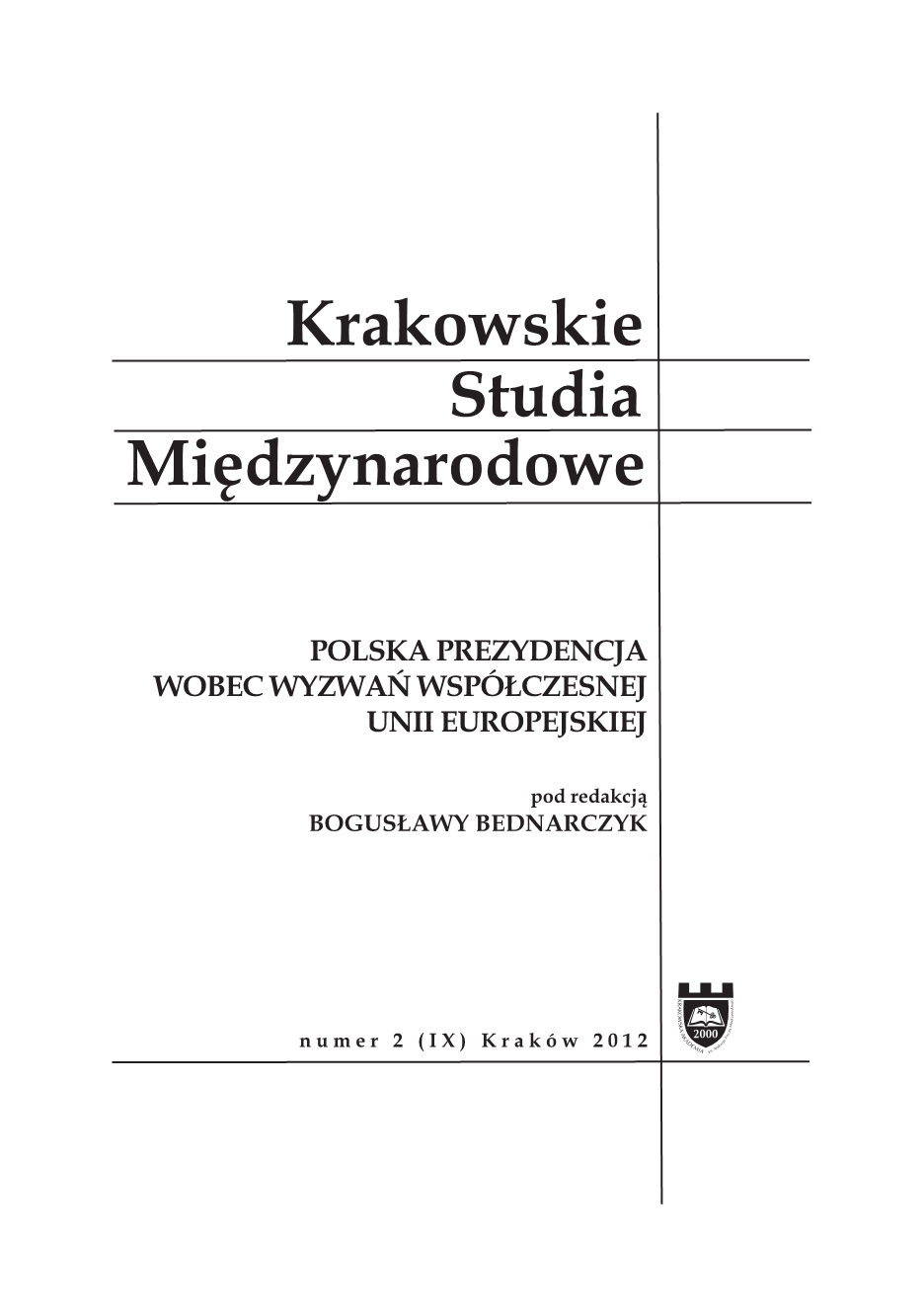Wpływ polskiej prezydencji na kształtowanie się polityki praw człowieka w UE. Wybrane zagadnienia
The Impact of the Polish Presidency on the Form of the EU Human Rights Policy – Chosen Issues
Author(s): Bogusława BednarczykSubject(s): Human Rights and Humanitarian Law, Governance, International relations/trade, EU-Accession / EU-DEvelopment, EU-Legislation
Published by: Oficyna Wydawnicza KA AFM
Keywords: Polish Presidency; EU
Summary/Abstract: The purpose of this paper is to examine human rights issues through the prism of the Polish Presidency in the EU Council. The Polish Presidency of the EU Council started with high expectations on the part of other Member States and EU officials. Poland took over the EU Council Presidency on 1 July 2011. Assuming the EU Presidency for the first time since its accession in 2004, Poland was well prepared for this challenge. At the same time, all actions of the Polish Presidency were very closely watched in other EU capitals as it was the first Presidency held by Warsaw. Even more so, as the previous Presidencies held by Member States that had joined the EU after 2004, had not been considered as terribly successful. Both the Czech Republic, because of the collapse of the government, and Hungary, because of the adoption of the controversial act on the media, were remembered as weak presidencies whose achievements had been overshadowed by negative internal developments. The Poles were aware of the fact that the standards were set high and of the challenges they would have to face. They also knew that even well prepared Presidencies were often hampered by unexpected turns of events. In a very difficult atmosphere marked by discussions on the need to deal more decisively with the economic crisis and the expectations of strong action on behalf of Europe’s leaders, the Polish Presidency pushed the European Agenda forward and achieved some significant results. The main task of the Presidency was to lead the EU on a path to faster economic growth and an enhanced political community. In order to follow these targets, this article has been concentrated on some aspects of the three basic presidency’s priorities: “European integration as the source of growth”, a “Secure Europe” and a “Europe benefiting from openness”. Special emphasis has been put on the development of expanding the area of European values and regulations, including further EU enlargement and the development of cooperation with neighboring countries. The initial objective of the Presidency, adopted by the Council of Ministers in May 2011, was to implement effectively the Stockholm programme. Thus, activities were engaged to protect EU citizens and facilitate their access to justice. Poland fully implemented the priority of the Presidency concerning the strengthening of collaboration in combating drug-related crime. The European Pact against synthetic drugs was adopted, along with the conclusions of the Council concerning the cooperation between the EU and Eastern Europe concerning drugs and conclusions concerning combating of new psychoactive substances. Taking into consideration the EU human rights policy, this paper aims at providing a general, and at the same time, comprehensive picture of the Polish Presidency activities in the field of the EU support for the protection of fundamental rights, as well as enhancing mechanisms for the prevention against any kind of discrimination. One of the key elements, in that respect, has been the EU accession to the European Convention on Human Rights and Fundamental Freedoms. As a part of its Presidency, Poland took a major step forward in the process of the negotiations for the accession.
Journal: Krakowskie Studia Międzynarodowe
- Issue Year: IX/2012
- Issue No: 2
- Page Range: 23-37
- Page Count: 15
- Language: Polish

